#easy to see where nick got his words of affirmation love language from!
Explore tagged Tumblr posts
Text
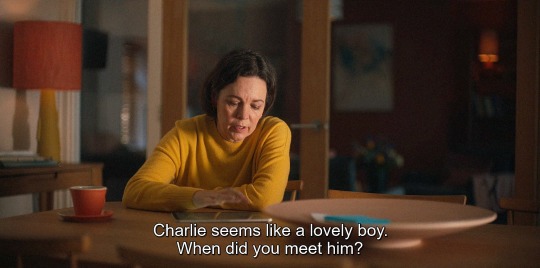

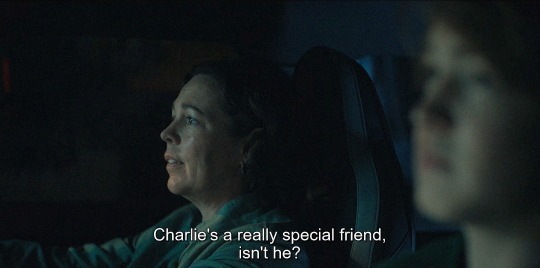
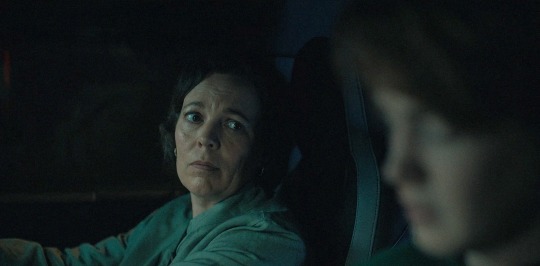
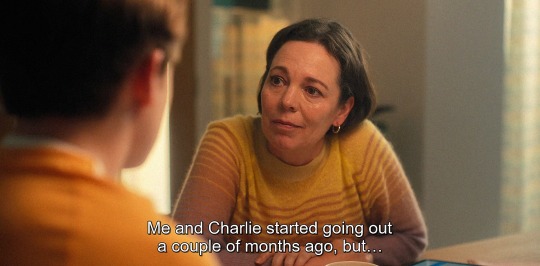

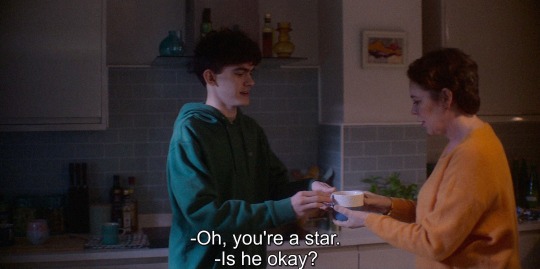
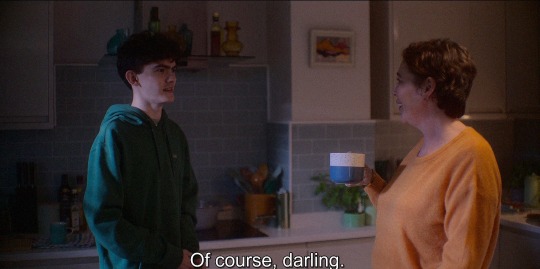
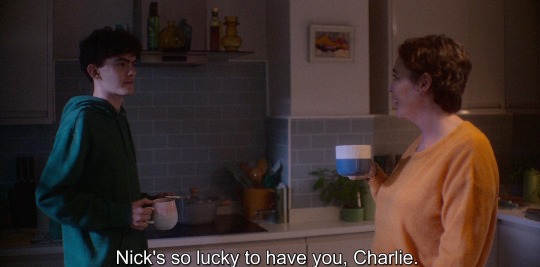

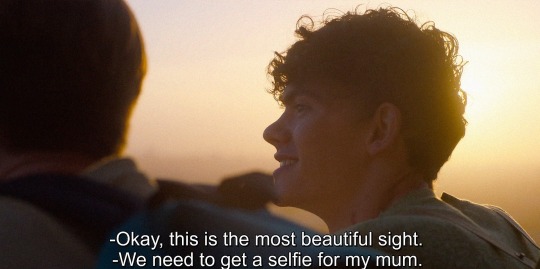

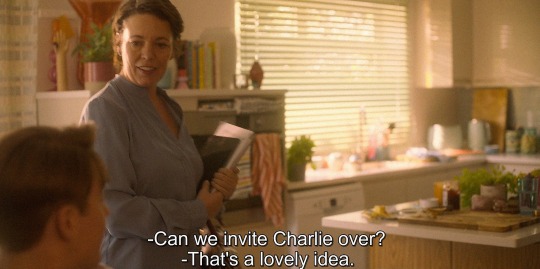

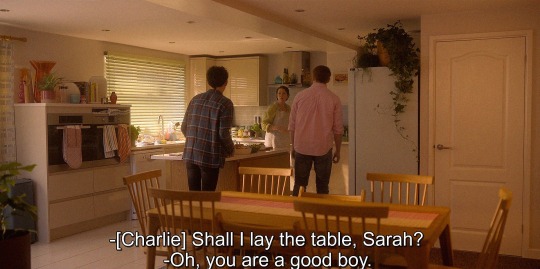

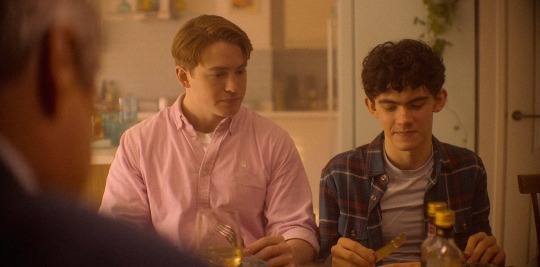


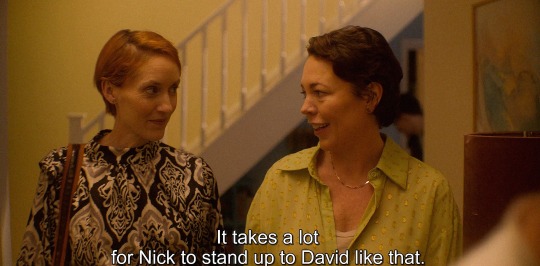
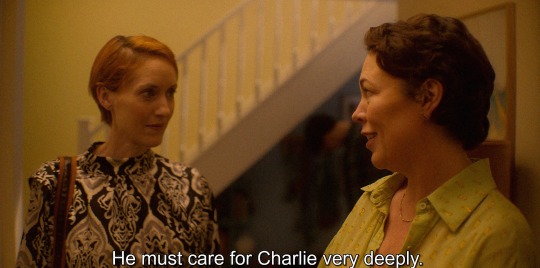
sarah nelson being a charlie spring lovebot
#heartstopperedit#heartstopper#charlie spring#sarah nelson#nick nelson#narlie#nick x charlie#mine#thank god for 30 pics posts bc damn if i had to cram into 10 pictures#easy to see where nick got his words of affirmation love language from!#and why charlie considers nick's house a safe space as well
8K notes
·
View notes
Text
take the hint




word count: 4,715 ship: Nick Leister x reader rating: R (for crass language and uncomfy situations for the reader) summary: Nick begins to lose his patience when Lion's friend, Mark, won't stop bothering you at a party. notes: masterlist is here! gifs are from here! notes 2: still blown away at the lovely comments, asks, reblogs and likes. thank you all 🥰
Your relationship with touch is complicated.
You’ve always been very open about your love languages, how you preen under words of affirmation, or lean into intimate touches. If you’re being honest, being with Nick has made that one come alive. You’ve been in a couple of relationships in which their touch was not thoughtful, bruising, making you shy away from craving it with anyone else.
Until you met Nick.
Nick, who’s clearly a very tactile person, reads you like an open book. Pages that have always been visible for someone to see, and yet no one has taken the time or effort to do so. He used to approach every single one of his touches with an air of permission, whether verbal or a lingering question in his eyes in which you could say no at any time. You don’t think he understands how much that meant to you, what it still means to you.
Maybe it’s why it was so easy to fall in love with him, because trust and respect were the things missing from your past relationships. Touch with him is so automatic now, absentminded, as if it’s always been easy.
And you suppose that’s the point.
—
Fixing your lipstick in the mirror, you take one final look at your silky babydoll dress and give yourself a light smile. Exiting the bathroom at Lion’s place, you automatically find Nick waiting for you. A soft, handsome smile brushes over his features as he reaches for you, fingers lacing as if it’s the simplest thing he’s ever done. He guides you towards the living room, where your friends are, his thumb tracing your knuckles.
You take in his easy attire; jeans, a black t-shirt, sweater, silver accent jewelry, and envy the fact that he can always pull off something that takes little effort.
The house is filled to the brim with people, a typical party to enjoy company, dancing, a little bit of food and too much to drink. Lion’s got a pool outside that has people jumping in, a hot tub that couples are lounging in with champagne flutes and a games room that hosts pool and darts. You tease that the game space reminds you of something out of the seventies and he admits there was a shag carpet in there at one time.
This party is thrown for no reason, just like any other, but what’s different is that Lion has a friend visiting from another city for the weekend, so he’s joined your friend group for the night. Mark is tall, broad and loud, but not necessarily in a bad way. He clearly has a strong personality to match up with his defined features—handsome, but in a way that tries a little bit too hard. His blonde hair is cropped short to his head, but not buzzed, and there’s a spattering of facial hair on his jawline. His eyes are blue, electric, dipped even a shade brighter thanks to the flow of alcohol.
When you’re introduced to him, he hugs you, and you let out a nervous laugh, squeezing the hand that never left Nick’s. When you tell him it’s nice to meet him, his hand brushes your arm before letting go.
“Wow, American?” He asks and your cheeks flush before you give him a smile as you nod. “Brilliant.”
“I like to think so.” You agree, taking a step back with a soft laugh.
Jenna brings over a round of drinks and you grin when she tosses an arm around your shoulders to encourage you onto the makeshift dance floor. Nick squeezes your hand before letting go, and you grin at him over your shoulder as you let your friend sweep you away.
—
You’ve never had any problems with friends that are girls touching you, or even girls that are strangers. There’s a safeness there that you don’t have the words to explain. So when Jenna throws her arms around you or hugs you from behind, or a random girl a little too drunk in the kitchen touches your hair and tells you you’re beautiful, you just grin and squeeze on back.
It’s not the same when it comes to guys.
—
Chewing on your lower lip, you attempt to concentrate as you line up the pool cue with the table. You’re not…the best at this game? But it’s slightly better than darts. You let the cue slide forward and hit the white ball and it rolls…but hits nothing. Or not. You wince, leaning back up before glancing over at Mark and Jenna who are trying not to laugh.
“Okay, rude,” You call out to them, Nick looking over his shoulder as he throws darts with Lion and grinning when he sees the pool table. “Even ruder.” You point at him.
He throws his hands up with an expression of total innocence, “I didn't say anything.”
Rolling your eyes, Jenna takes her turn and you lean on the pool table, watching as Nick plays darts. He’s taken his sweater off and you’re a little addicted to the way his biceps flex against the sleeves of his black t-shirt. The long lines of his back make you want to move towards him, press your face into the slope of his shoulder, breathe him in.
“She does this sometimes.” Jenna steals your attention and you huff out a laugh when you realize she’s speaking about you to Mark. “Totally head over heels, those two.”
You roll your eyes but you’re smiling, trying to line up and take a shot again. You’re not sure if it even matters—it’s not like anyone is actually keeping score, there’s nothing for the winner other than bragging rights. You’re not drunk yet, but you’re on your way to being so, a rose-colored tipsiness that sits warmly in your blood.
You don’t notice when Mark moves but suddenly he’s beside you, “You’re choking the pool cue.”
You blink, looking up at him, “What?”
He smiles, “The pool cue,” He motions to it in your hands, “It’s not loose enough.”
Your eyebrows draw together, “I don’t get it.”
Without asking, he reaches for you, unfolding your hands from the billiard cue. You feel yourself stiffen, standing from leaning on the pool table as he places your palms a little further apart. His fingers are warm, too warm, his cologne a little citrusy and it makes your stomach a bit queasy. You shake off the sensation, nodding as Mark instructs you—he’s just trying to be nice.
“You want the cue to be able to glide through your hand here,” His thumb brushes yours, “Then—”
“I got it.” Nick interrupts and when you step back from the pool table, he’s there on the other side of Mark.
His face is impassive, but you can pick up minute details of irritation that anyone who doesn’t know Nick might not notice. He’s leaning his hip against the pool table, appearing lazy, but there’s a tightness to his shoulders, a feathered twitch in his jaw. And his brown eyes are alight with heat.
“Oh of course,” Mark laughs, stepping away from you. “Just trying to help.”
Nick hums, watching as he steps away before taking his place. The moment you feel the warmth of his body press against your back, his arms creating a cage around you, you instantly relax. A soft sigh leaves your lips, Nick dipping his chin to brush a kiss along your shoulder.
“Not sure I can concentrate with you against me like this.” You smile, shifting a little to look at him.
He leans in close, as if he’s sharing a secret, brushing your noses together in a bunny kiss. “I don’t care.”
You drop the pool cue, turning around to wrap your arms around his shoulders. Nick takes a step forward, pressing you back into the edge, his hand cupping your cheek as you lean up and kiss him. Smiling against his lips, your fingers play with the curls at the base of his neck.
Definitely not concerned about learning how to play pool anymore.
—
As the night spins forward, it’s clear that Mark is the type of person that can get along with anyone. He makes friends with random people at the party, loud laughter and exaggerated touches as he’s pulled into drinking games and conversations. When he comes back over to your group, Nick takes a small step forward, his arm slipping around your waist to mold you into his side.
It’s a gesture that most people probably wouldn’t notice for what it is, but you do—it’s possessive.
You get that drinks are flowing, Mark is obviously having a good time, but it seems like he’s been finding excuses to touch you. A hand on your arm when he laughs, or a guiding elbow so you can shift out of the way if someone is pushing through the crowd, his hand on your upper back when he’s trying to get your attention to ask you a question or talk about something over the music.
You get having a large personality, you’d even understand being a touchy person in general but…you can tell that Nick’s patience is wearing thin. It’s in the tightness of his shoulders, the way he’s biting the inside of his cheek any time Mark wanders over and begins to talk to you, the way his responses start to become short and nearly disconnected from the conversation taking place. You soothe a hand under his shirt, thumb brushing the base of his spine, his attention slipping down to you.
“Hi.” You give him a soft smile, “You okay?”
Nick draws in a breath, letting it out through his nose as he glances at Lion and Mark before nodding. “I’m okay.”
“I dunno if I believe you,” You tease, turning a little, his hand squeezing your hip. Your eyes flicker to the way his eyebrows are drawn together, “You’re gonna get wrinkles like that.”
He rolls his eyes but the corners of his mouth tip into a smile, lifting his beer to take a long sip. Jenna declares that jello shots are needed and you find yourself wrinkling your nose because blegh. You are not a fan of taking a shot that has liquor infused with a substance that jiggles.
“No, c’mon, get regular shots,” You giggle as Jenna pouts. “Jello shots give me the ick.”
She turns to head to the kitchen and you’re unsure of whether or not she’s going to get what you’ve requested, but Mark goes with her, and you can feel Nick’s body slowly uncoil as you’re left alone. You lean up to press a kiss to his cheek, snagging his attention again,
“Please don’t get into a fight tonight.”
Nick raises his eyebrows, picture-perfect innocence, “No idea why you’d worry about that.”
“Nick.”
“Y/N.”
Your hand settles on his waist as you turn a little to better face him. Nick lifts his arm to rest along your shoulders, folding you more firmly into his chest. As he looks down at you, you notice how perfect his eyelashes are, how they rest on his cheeks, the fullness of his lips, the beauty marks on his one cheekbone. He brushes a kiss across your lips, definitely in an effort to distract you. While it’s a solid attempt, you shake your head, your hand moving to rest on his chest.
“I’m serious.”
Nick pulls back just a little, licking his lips, “You’re uneasy, I can see it on your face.”
Warmth settles in your chest that Nick sees you so clearly, that he’s worried about you. That he’s protective. It means everything, especially given your past relationships. But…
“I don’t want you to fight with Lion’s friend in his house.”
“I can easily take it outside.”
You huff out a sound that’s the combination of a laugh and scoff. You suppose you should know better than to try and talk Nick out of anything. Running a hand through your hair, you can hear Jenna’s laugh approaching, so you’re hoping you can make your feelings clear—
“I’m okay,” You assure him, fingers curling a little in his shirt near his heart, “I promise.”
Nick’s eyes bore into yours, like he’s trying to pick out any thread of doubt, but you’re not going to let him see any. Yes, Mark might make you slightly uncomfortable, but it’s nothing to be upset over. Emotions are heightened right now, inhibitions lowered. He’s only here visiting for the weekend, it’s not like he’s a permanent fixture in your friend group.
Jenna appears by your side again, handing you a regular shot, jello shots for the rest. You smile warmly at her and clink glasses with everyone in the circle, tipping the liquid back to swallow. The heat is familiar as it settles in the bottom of your stomach, blooming outward and slowly nullifying your nerves.
You can handle one party. You’re just not sure if Nick can.
—
The invisible push and pull between Nick and Mark spans out over the length of the party. You’re not sure whether Mark’s even aware of what he’s doing, or if he is, he’s definitely just doing shit now to piss Nick off. He brushes his shoulder into your own when he dives into a story about the last time he was in New York, which is where you’re originally from.
“And the pizza slices there,” He continues, even when you’ve taken a step away to create space, a gentle smile on your face as you nod. “I mean, some of them are as big as your fucking head. And there’s so many of them? You could easily put together some sort of tour and not be able to cover them all in a weekend.”
You know you should just say something, maybe he’s just…unaware that he’s handsy? That he takes up space. Sometimes he kinda reminds you of a golden retriever puppy that doesn’t realize his limbs are everywhere because he has yet to grow into them.
You’re not one hundred percent comfortable, but you do talk about New York for a bit. It’s only been two years since you’ve moved to London but you miss it? It’s easy for you to dive into bits and pieces about when you lived there, a distraction from the slow pulses of anxiety that wash over you in waves any time you get a good look at Nick’s face. You can tell he’s still lingering on what you two talked about, not enjoying the party as much as before because he’s wound tight like a rubberband ready to snap.
As you all stand around outside, the air fresh and cool, you glance over at Nick as he talks to Lion, Jenna off to the bathroom. You wonder if you should suggest that you head out for the night? It’s getting late anyways. But when you go to move, Mark reaches into a cooler nearby and grabs a bottle of beer for himself, offering you one.
You shake your head, “Think I need to stick to water.”
He then switches it out for you, fingers brushing over your own as he hands it over. “You should visit Oxford some time,” He says, “It’s only a two hour drive.”
A soft smile in response, “Yeah maybe, I’ll see if Nick wants to go.” You bring up your boyfriend for two reasons—one, if you’re traveling anywhere and need an adventure buddy, he’s your first choice. Second, it doesn’t hurt to give Mark a bit of a reminder that you are not here at this party on your own and that you are not single.
Mark’s eyebrows draw together in soft confusion, having a slow pull of beer from the bottle. You catch a whiff of his cologne as a breeze brushes through; it’s now mixed with the scent of stale beer and a bit of sweat. You swallow, playing with the wrapper on the water bottle, peeling the corner a little with your nails.
“What, you need his permission?”
Your mouth opens a little, bristling a little at the implication. “No, I just meant—”
“I mean,” Mark leans a bit closer and your pulse spikes as it feels like he’s towering over you, “It sounds like you’re unable to come visit unless he tells you it’s okay. That doesn’t sound like a really healthy relationship but,” He smiles, his gaze falling to your lips, “What do I know?”
You’re about to argue with him—your blood pumps hotly in your veins that this guy has no idea who Nick is; he’s trying to drag his name through the mud. That he’s trying to imply that he’s some sort of controlling, overbearing boyfriend and that…that’s the farthest thing from the truth. You’ve had exes like that, and the flippant comparison upsets you. That, paired with the closeness of his body, makes your stomach clench.
You’ve always been a touchy person but…not with people you don’t know, especially not guys who are practically strangers. That’s who Mark is. A stranger. He might be a friend of Lion’s, but he’s far too comfortable getting close to you, by shelling out his unwanted opinion. You feel like you should be able to blame this behavior on the alcohol, but you’re getting a sneaking suspicion he might be like this stone-cold sober.
You’re trying to be polite, welcoming, a ‘friend of Lion’s is a friend of yours’ but you can feel yourself become rigid, backing up right into—
“We were just talking about you.” Mark says to Nick. Your boyfriend’s arm slides around you, fingers massaging your hip in a calming gesture, as if he can sense the uptick in your anxiety.
“Can you talk further away?” Nick says, it’s not actually a request. “You’re in my girlfriend’s space, you’re making her uncomfortable.”
Mark scoffs out a soft laugh, as if something’s funny and then does a dramatic step back. “This good? Sorry man,” He does not sound the least bit sorry, “She didn’t say anything.”
Nick’s jaw clenches and you can tell he’s biting down on another set of words about how you shouldn't have to tell him that, “That’s because she’s nice.” His voice has a sharpened edge, as if Mark stepped close enough, it’d cut him. “I’m not.”
Mark’s hands lift in mock surrender, as if he’s not going to fight on this, laughing again before taking another sip of his beer. Lion must sense the tension, because he steps between the two of them,
“Feel like it’s time to get in the hottub, yeah?”
Mark’s all over the idea and allows himself to be pulled in another direction, one glance back at you before he begins talking about visiting Oxford again, this time for Lion and Jenna’s ears when she rejoins the group.
Nick’s head tilts down, brushing a question against your ear. “You alright?”
You nod but his eyes, once again, do not leave yours. He doesn’t believe you this time, he can read right through you. His fingers squeeze your hip in a silent conversation—want me to do something about this?
“No,” You reply quietly. Last thing you want is to stir up trouble with Lion’s friend. It’s not worth it.
You’re about to suggest what you meant to before, leaving, but Mark appears again with Lion and Jenna in tow. His movements are too quick for you to realize what’s happening, like your brain is playing catch up with what your eyes are seeing. Mark reaches for you, grabs onto your arm and tugs—
“Jenna wants you to join the hottub,” He’s saying, but the rest of his sentence is drowned out when Nick shoves his shoulder hard enough for Mark to trip over his own feet and end up on the concrete.
“Keep your fucking hands to your fucking self,” He snaps, his restraint finally splintering.
The party dissolves into a cacophony of voices, laughter and callouts. Some people, who have clearly seen Nick fight before, call for him to suckerpunch whoever he pushed over onto his ass. Some are grabbing their phones to record whatever is about to happen next, and a few comments over the sound are clear that they don’t want the party to end early—so stop fucking fighting.
You quickly move in front of Nick before he can step forward, your hands coming down onto his chest as you can hear Mark stumbling behind you, being lifted by Lion.
“What’s your problem?” Mark nearly steamrolls Lion, trying to move past his friend to get in Nick’s face. He gets within an inch of your boyfriend, you can feel the heat of his body like static electricity against your back. The calm, easy demeanor he held before is completely gone, replaced with booze-infused fury.
“Yo, knock it the fuck off,” Lion tries to yank Mark back but he’s immovable.
You glance over your shoulder, stumbling back just a little as Nick shifts his weight. Fuck, this is so bad. You’re definitely regretting not speaking up for yourself, attempting to put Mark in his place. Maybe you could have helped dissolve some of the tension? But honestly? Maybe that’s naive. You feel like ever since Nick saw Mark pressed too close ‘helping’ with the billiard cue that this was going to end up happening.
“My problem?” Nick’s eyes widen in disbelief, a dangerous tilt to his voice, like he might push past you despite your attempt to keep him at bay, “My problem is that you don’t know how to take a hint and stop.”
“She has a mouth, doesn’t she? I guess the bitch should have said something.” You wince at the crass remark but that doesn’t matter to you. All you care about is getting Nick to calm down. You can leave, take some space, touch base with Lion once Mark heads back to Oxford.
But with one look at Nick you can tell the exact moment he sees red.
His shoulders dip, a sense of calm that reminds you of what happens right in the eye of a storm. He moves you aside with such a tenderness he shouldn't be capable of right now before cracking his fist forward. It’s quick, something practiced, his knuckles slamming right into Mark’s nose and upper lip. When his head whips back, the force of it sends him right into the fucking pool. There’s a chorus of oh’s that surround the party, Jenna gasping and putting her hands up to her face.
“Shit.” Lion mumbles, quickly moving to the pool as Mark breaks the surface.
You don’t even have a chance to say anything, Nick is turning and gently grabbing your hand, guiding you out the backyard. You pass Jenna and you manage to squeak out a sorry to her, though you’re not sure why you’re apologizing.
So much for being able to handle one party.
—
The last thing you’re going to do is chastise your boyfriend about punching someone who deserved it. Despite the busyness of the party, you’re sure both Jenna and Lion were able to pick out points in which you were uncomfortable. You just hate that it turned out like this—you and Nick leaving early, standing between his legs in his kitchen as he sits on a stool, cleaning up his knuckles.
“I should have said something sooner,” You offer quietly, bringing his hand closer to your face so you can see the small cut on his middle finger knuckle better.
His fingers twitch, “This isn’t on you. Mark doesn’t seem like the type to take ‘no’ seriously.” And you give a gentle wince because…that doesn’t seem like a person Lion would be friends with. But sometimes people show you who they are, sometimes you see versions of them that hide their true nature. You’ve been there before with your exes…you know that better than anyone.
And because you can read him so well, you add, “It’s not your fault either.” You brush your thumb back and forth over his fingers.
Nick scoffs, “Should have fucking decked him after the pool table, would have saved a lot of time.”
The tip of your lips twitch up because you are pretty sure that would have solved zero problems, but you appreciate the sentiment. When you go to pull back, throw away the trash from cleaning him up, Nick reaches for you. His hand cups your chin, his thumb brushing over your jawline, the action meant to draw your attention to him. Your eyes meet his and he takes a long moment to press his thumb to your lower lip and you kiss the pad.
A flutter of a smile on his face. “You’re alright?”
Your chest warms with how he asks it, like as long as you’re okay, then anything else that happened tonight doesn’t matter.
“I’m not the one who got suckerpunched into a pool tonight, so,” You smile, a small laugh bubbling up, “I’d say I’m doing alright.”
There’s an eyeroll from him but at least the tension seems to have disappeared from his shoulders. “Glass jaw.” He mutters and you bite down on a grin at the crinkle in the bridge of his nose.
He uses his legs to keep you from moving, leaning up a little and over to wrap his arms around your waist and presses his lips to yours.
—
When Lion comes over later, the first thing out of his mouth is an apology. You’re not sure how you expected it to go, but you can tell there’s this brief moment where Nick looks concerned that Lion might try to defend any part of Mark’s nonsense tonight. There doesn’t have to be sides here, but you can tell that Nick would choose yours in a heartbeat.
“Absolute tool.” Nick comments.
“Couldn’t agree more,” Lion shakes his head, and when he glances your way, he gives you an apology as well.
You gently wave him off as you sit down on the couch, even though you appreciate him offering it up. Lion doesn’t owe you an apology, and you wouldn’t begin to take one from Mark if he tried.
“Not sure if it matters, but he won’t be visiting again. Told him to lose my number.”
Drawing your legs up onto the cushion and to your chest, you give him a tired smile, “It matters.”
Nick walks Lion out and you’re not sure what they talk about but you can hear the murmured conversation between them. The last thing you would want is for their friendship to be fractured by fucking Mark, so you’re glad to see it isn’t. You check your messages, a soft smile as you see a few from Jenna, assuring her that both you and Nick are alright, sending her a heart emoji before putting your phone on Do Not Disturb. Running a hand over your face, you lean your chin on your knees, allowing your eyes to close.
It’s late, you know that even if you don’t remember what the time said before you set your phone back down on the coffee table. A yawn slips out of your mouth and you hear Nick come back into the living room, running a hand along the back of your neck.
“Bed?”
“Don’t want to move,” You admit.
Nick brushes your hair over your shoulder before he sits down on the couch, stretching himself out along the cushions. He playfully nudges you with his knee and you turn your head to see him leaning against a few pillows along the arm of the couch. Something inside your chest aches in the best way, seeing him like this—comfortable, warm, safe, yours.
You smile, mapping yourself along his chest. His legs open up to accommodate you and you slide right between, your chest lining up with the lower part of his abdomen, head tucked under his chin. You press your nose into the fabric of his shirt, breathing him in as he tugs a blanket down from the back of the couch to cover you both. His one hand runs up and down your back, his lips brushing along your temple before he kisses your forehead.
Your relationship with touch may have been complicated before meeting Nick, but there’s no confusion now. His touch is warm. His touch is loving.
His touch heals.
#my fault london#my fault: london#nick leister#nick leister x reader#matthew broome#matthew broome x reader#my fault series#my fault london x reader#mccall writes things
264 notes
·
View notes
Note
What do you think the companions love language would be?
More on the five love langauges
Ada: Gifts. You can see this in her own behavior- whenever she gives her partner the junk she’s picked up she’s trying to show them how much she appreciates them sticking with her. It doesn’t have to be big, rather, she prefers small gifts that don’t mean much to anyone but her. She just thinks it’s sweet that someone was thinking about her and picked something out as a gift with her in mind.
Cait: Acts of service. Cait isn’t about all the cheesy romantic stuff; she doesn’t want chocolates or have to be told how special and loved she is every day. It’s hard for her to talk about her feelings openly, but little things like her partner handling unpleasant tasks let her know they still care about her and have her on their mind. It’s especially nice to come home, expecting to have to do something she doesn’t want to, and hear, “Oh, I took care of that for you.”
Codsworth: Words of affirmation. Though he is programmed to do certain duties, a little “thanks, Codsworth” now and then goes a long way. It’s nice to feel like he’s appreciated in his role; it makes him feel like he’s more part of the family.
Curie: Physical touch. Curie is still fairly new to her synth body and all its features, so physical touch is a very strange and exciting territory. Nothing will make her happier than casually holding hands with her partner as they walk or letting their hips brush together when they work side-by-side. It’s a very classic form of romance for her, and it constantly reminds her that she’s here, she’s feeling this, that it’s all real and nothing can change that.
Danse: Quality time. Danse has always appreciated having a deep emotional connection to the people around him, and so he values being able to truly sit down and just talk to his partner. It doesn’t even matter what they talk about; he likes that they’ll take time out of their day to listen to him and that they want to communicate with him, too. He feels like he’s being listened too, unlike in the Brotherhood, where he was either giving or receiving orders with no real communication. It’s different, and he appreciates that.
Deacon: Words of affirmation. He’s got a lot of insecurities hidden away, so taking a moment to help him rebuild his self-esteem is very much appreciated. Even if it’s as simple as, “You did good work out there,” it helps him to feel a bit better about himself. It’s very endearing how flustered he gets when he knows it’s genuine, though he’ll often try to play it cool and respond, “You weren’t so bad yourself.”
Gage: Gifts. Gage doesn’t usually receive a lot of things, at least, not without having to pay some sort of price. A nice gift with no strings attached tells him that not only was his partner thinking of him, but that they value having him around enough to think he warranted a gift just by being there. He’ll never admit to it, but it’s easy to tell because he gets so flustered.
Hancock: Quality time. He hasn’t had a lot of people he can be truly close to in his life, people he really feels like opening up to and telling them his problems. He likes to know that his partner is always there for him, and some quality time with them really helps to drive that point home. He likes to just be there with his partner, no distractions, just the two of them talking about anything and everything.
MacCready: Physical touch. It’s something he hasn’t really gotten since he left D.C.; the Gunners weren’t going to give it to him, and it wasn’t like he had many friends after he took up independent mercenary work. He’s not much for PDA and prefers to keep things mostly private, but behind closed doors cuddling is the best way his partner can tell him that they’re still in love with him and that they still want to stay.
Nick: Acts of service. This is particularly evident while helping him with detective cases. Nick absolutely loves when his partner offers to take a load off his shoulders and work with the agency for a while. It gives him a much-needed break, and he loves to watch his partner’s intellect at work while they track down the clues and solve the case. It’s a task he doesn’t trust many people to, so he appreciates his partner recognizing that trust and taking on the jobs.
Old Longfellow: Acts of service. He’s long past the starry-eyed butterfly love of his youth, and these days tends to have a much milder romance. As he gets older, it gets harder to do certain tasks, and that’s where the acts of service come in. It shows him his partner is thinking about him on a day-to-day basis, even when doing the most mundane things. Coming home to the fire already built and the house semi-clean is always touching.
Piper: Gifts. Piper certainly didn’t grow up rich and hasn’t lived a wealthy life, so gifts have always been few and far between. Nothing says “love” to her like a bouquet of flowers or being treated to a cup of noodles. The little day-to-day gifts are her favorite, because they’re small and convenient for both her and her partner. She’ll never admit how much she enjoys it, though. She doesn’t want to seem selfish.
Preston: Quality time. He knows that both he and his general are busy people, so they don’t get to see much of each other out on the road. That’s why he likes to have quality time where it’s just the two of them. It gives them both a chance to decompress and tell each other about their day, and it always makes him feel better and a little more loved.
X6: Words of affirmation. The concept of “praise” is fairly new to X6. In the Institute, he never got it from the scientists, they just gave him his scores and sent him on his way. Other coursers and synths might have given it on occasion, but very rarely. For his partner to say he’s done something well or thank him for something he’s done shows him how much he’s truly appreciated. It’s new and exciting, and though he plays it cool, he’s screaming internally.
#fallout#fallout 4#fo4#fo4 companions#fallout 4 companions#fallout 4 companions react#ada#cait#codsworth#curie#danse#deacon#gage#hancock#maccready#nick valentine#old longfellow#piper wright#preston garvey#x6-88
315 notes
·
View notes
Text
TRC Translation Notes Volume 17 (Chapters 125 - 132)
More lovely notes from the even lovelier @giniroangou!
Highlights include: more coherent wish conversations, lifespan clarifications, Kamui being even worse than before, it’s true, sweet lines from sweet people, Nick finally understanding why Sakura had to go into the Acid desert alone, clothing choices explained, touching moments all around, and Good Morning Kurogane Redux!
Chapter 125
p.5 - Yuuko says that if she were to save Fai herself, the price would be “too heavy.” This is why Kurogane looks so murderous - it sounds like she’s telling them she won’t do it. This also makes Subaru’s wish a few pages later feel less presumptuous. He’s not cutting in on the Tsubasa family; their turn is already over.
p.7 - As in the previous volume, this should be “Immediately after we came to this world” rather than “Soon after,” but I love the hilarity it’s caused.
p.12 - Subaru’s point is that the events that unfolded may have been inevitable, but they wouldn’t have happened within the reservoir if it weren’t for his presence there. It still doesn’t quite make sense, since it wasn’t his fault he got sucked in by the feathers in the first place, but it’s slightly more coherent than the translated version.
p.19 - It’s not that Fai must not receive vampire blood alone, but that if we were to receive just vampire blood he would end up drinking the blood of various people.
There’s also a subtle difference in wording about the wishes here that I feel changes the nuance slightly. Yuuko says: “Kurogane, keeping Fai from dying is your wish. Fai doesn’t want that.”
Chapter 126
p.30 - The sounds Fai is making in this scene are represented by a small tsu in Japanese (ッ), which indicates either a pause in speech or a glottal stop. To me, it gives the impression that Fai’s vocal chords are under pressure but there’s no real sound coming out, so it’s like silent/suppressed screaming. It’s up to interpretation, but if he is making any noise here it isn’t anything coherent enough to be the start of a given word.
p.32 - I would interpret Satsuki’s line as an apology for not being able to heal Fai earlier.
p.35 - Yuuko says that due to Fai’s enormous magical powers, he already had a long lifespan. For her line about his age vs Kurogane’s, “multiple times” could be an alternative translation to “many times.” In Japanese she says “nanbai mo,” which I’d say could be as few as four times (though it does have the potential to be much greater than that.)
As a side note, there is a fan translated version of this scene where Yuuko says that Kurogane’s lifespan will increase along with Fai’s. A large portion of the fandom was led to believe this and there are still people who are unaware of the proper translation, so if you see anything along those lines popping up in meta or fanfic, that’s where it comes from. It is based on a mistranslation, though.
p.36 - In the original text, Kurogane says that he saw the trust Mokona had in Yuuko when Mokona asked for her help. Since he trusts Mokona, he went along with the deal. (Just replace Mokona’s name with “that thing” lol.)
p.41 - Kamui’s “It was nothing” is ruder and more dismissive in Japanese. He says “...betsu ni,” which I think could best be represented in English as “...whatever.” It’s a total sulky teenager response.
Mokona is saying that things will be difficult for Fai from now on specifically because he’s a nice person.
p.43 - A little detail that I love: Yuuko refers to Fai as “that child” in this scene. It feels somewhat affectionate, but also gives the sense that Yuuko has been around for a very long time, especially in light of the recent revelation about Fai’s age.
Kurogane is actually setting his priorities here - he says there are still things he wants to ask, but the underground water comes first.
p.44 - Sadly, Subaru is not sharing the blame with Kamui in this scene - he’s still just saying it’s his fault.
Chapter 127
p.58 - Sakura’s first words to Lava Lamp are spoken in polite language vs the casual speech she used with Syaoran, creating an immediate distance between them that colors the silent exchange that follows.
Chapter 128
p.70 - Here, Yuuko is saying that the impurity of the water is its strength; because it hasn’t been sterilized it still has its natural power. (The antidote thing is a mistranslation.)
p.75 - Fuuma’s comment about having no means of communication is specifically in reference to Yuuko: “Since coming to this world I’ve had no way to communicate, so it’s been a while since we last spoke.”
p.76 - Fuuma refers to Subaru as “Subaru-san.” He also says Seishirou is in Subaru’s debt (“osewa ni narimashita”) - it’s a polite expression that may imply kindness, but the focus is more on Subaru doing him a favor/helping him rather than on Subaru’s attitude towards him.
p.84 - Sakura’s actual original line was, “Tell me everything that’s happened up until now,” so though she’s logically asking about everything that’s happened in Acid Tokyo, you can totally interpret this as her asking about all the things that have happened since the start of the manga. Follow your dreams!
p.87 - I’m not sure if this got lost in translation or just didn’t fully sink in, but Sakura is going out alone because that specifically is the price. If someone went with her, it wouldn’t be enough for the deal - the true value of what Sakura’s doing comes from the fact that she is undertaking something dangerous without anyone to help her.
p.89 - Kurogane doesn’t specifically tell Sakura to come back alive, but he does tell her to go and come back (“ittekoi”/行って来い) so the implication is there. Then he says, “We’ll be right here until you return.”
Chapter 129
p.93 - In Fuuma’s original line there was no implication that Sakura’s trip would be easy, just that the compass would confirm the route for her.
p.97 - Fuuma doesn’t say that the Tower will be victorious, but that they’ll have an advantage without Kamui there.
p.103 - Mokona’s speech style made this scene difficult to translate, but she’s not really asking for permission to call Lava Lamp “Syaoran” - she doesn’t actually use his name at all outside of that one question. She’s just confirming that he does indeed have the same name as their Syaoran: “You’re named Syaoran too, aren’t you?” (The official translation really committed to the fact that Mokona never uses personal pronouns, which is pretty cool in theory but unfortunately ends up forcing some of her sentences into very different configurations. As I’ve mentioned before, it’s far easier to get by in Japanese without pronouns than it is in English.)
Chapter 130
Cover page - This chapter title should be “The Crossed Line” (In the sense of someone crossing or stepping over a line.)
p.116 - To highlight how significant this moment is, the original line has quotation marks around Kurogane’s name. It also comes after a pause, so it becomes: “…. Good morning, ‘Kurogane.’”
p.125 - There are some major mistranslations here. There is no implication that Yuuko was lying about Fai’s potential to stop being a vampire. Fai calls her soft for leaving that path open - he sees it as a favor she did for the other members of the group (implied: this isn’t something he wants for himself.) Yuuko then says that it may be more cruel to give them this option than to have Fai unable to return to the way he was before, but that’s up to Fai. (Implied: the choices Fai makes regarding his options are going to determine whether it makes things more painful for his family or not.) Side note: The word that’s been translated as “traveler friends” is actually “Syaoran-kun-tachi” (Syaoran-kun and the others) so it’s not as distant as it sounds, but it’s definitely stepping around Kurogane’s direct role and investment in Fai’s well-being.
p.126 - The word Yuuko uses can be translated as “reply,” but I think “answer” would be more appropriate. She says, “... So that’s your answer?” referring not to Fai’s literal reply to Kurogane, but rather affirming that pushing Kurogane away is his answer to the entire situation he’s in.
p.127 - Fai doesn’t speculate that Kurogane had never been given a nickname - Fai says that he himself had never called anyone by a nickname before.
p.128 - Once again, the word that’s been translated as “unhappy” also means misfortune in a general sense. It’s the same word Himawari uses to talk about her effect on the people around her. Happiness may be the ideal, but I would assume Fai is worried about much more serious things than just that - if the people he cares about are unhappy but otherwise unharmed, that’s still better than a lot of alternatives.
p.129 - What’s been translated as “all the young ones in your group” was originally Yuuko saying “those children.” Given that she referred to even Fai as a child a few chapters ago, it can be assumed she’s including Kurogane in this group. She also describes their relationship as reciprocal: “To you, those children are no longer just a passing existence. And to those children too, you are someone precious. Your pain is their pain as well.”
Chapter 131
p.135 - The translation for Lava Lamp’s reply is accurate here but it might be the tone of Kurogane’s question that makes it feel off. He sees that Lava Lamp is self-conscious about wearing Fei Wang’s symbol and says, “It’s not like you wore that because you wanted to, right?” Though it invites confirmation, I would interpret this more as a reassurance than as an actual question. In starting his response with “though” (or alternatively “but”), Lava Lamp’s agreement is implied. Ie: “[I didn’t want to wear it] But I’m sure it’s not something you want to see.”
p.152 - Sakura says there will be more times when she will have to hurt people directly (not have people hurt themselves.)
p.153 - When Sakura says she wants to return Syaoran’s soul to him, she uses the verb “torimodosu,” one of the same words Syaoran used regarding her feathers. If the official translation were consistent, her line here would be, “I want to give it back.”
Chapter 132
p.157 - Fai uses the verb “ikaseru” (行かせる), which could be translated as either “make her go” or “let her go.” In this context, I would interpret this as Fai asking why they let Sakura go alone, rather than asking why they sent her alone.
None of your thoughts on Fai’s continued use of “Sakura-chan” are wrong, but I would say it’s not the “-chan” itself that indicates he’s laying claim to their relationship, but simply the fact that he hasn’t changed the name he calls her by. I wouldn’t necessarily view Fai’s consistent use of -chan and -kun with Sakura and Syaoran’s names as an inherent sign of familiarity. Note how in Fai’s discussion with Yuuko he distinguishes his nicknames for Kurogane from his more “proper” way of addressing the rest of the group. It’s normal for adults to add these suffixes to the names of children, even ones they don’t know that well, whereas many parents will drop suffixes on the names of their own children as a sign of intimacy. If Fai suddenly started saying “Sakura” instead of “Sakura-chan” it would likely have the opposite effect that saying “Kurogane” did. That being said, if he wanted to establish distance between them he could have switched to “Sakura-hime” or “The Princess” or something along those lines. Thankfully when changes of address do happen, the context usually helps make the meaning behind them fairly intuitive (as in the “Hello Kurogane” scene.) It’s just good to keep in mind that there is no solid rulebook for this stuff - it all varies depending on relative status, relationship history, tone, personality, surrounding events, etc.
p.162 - Kurogane’s original line here was, “Are you planning to go to the Princess?”/“Do you intend to go to the Princess?” so it doesn’t sound quite as harsh as the translated version.
p.165 - Sakura not knowing where to go was merely implied in the Japanese text - she originally just says that there are no more footprints.
p.169 - Kurogane refers to Sakura saying she’d come back as a “promise.” Then he says he’ll wait even if waiting is more painful than going with her.
p.171 - It may not have been clear in the translation, but Lava Lamp deliberately switches the name he uses for Sakura here from “Sakura” to “The Princess.”
p.172 - Lava Lamp differentiates between pain of the body vs pain of the heart (incidentally using the same word for “heart” that is used to describe Syaoran’s heart/soul.) If Fai was injured, the pain in Sakura’s heart would be far worse than any physical pain. This then informs the scene that follows - I assume Sakura knows her physical injuries are worse than Fai’s, but her concern for him encompasses both physical and emotional damage.
#god I love these notes#Everything makes so much more sense all at once#Giniroangou#who is the actual best#Liveblogging the reservoir chronicle#tsubasa#Vol 125#vol 126#vol 127#vol 128#vol 129#vol 130#vol 131#vol 132#goodness Acid Tokyo actually has a coherent reasoning behind everything now#this is a blessing
31 notes
·
View notes